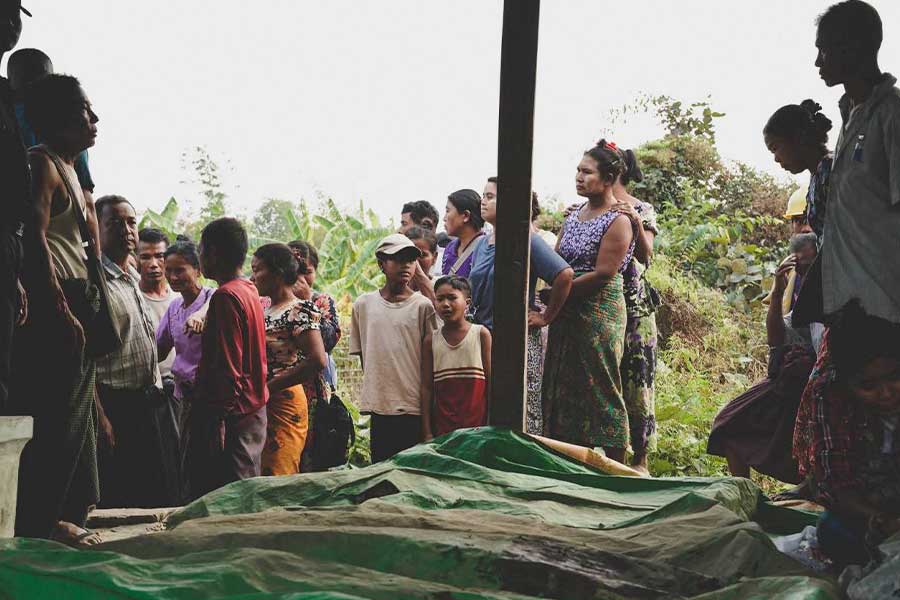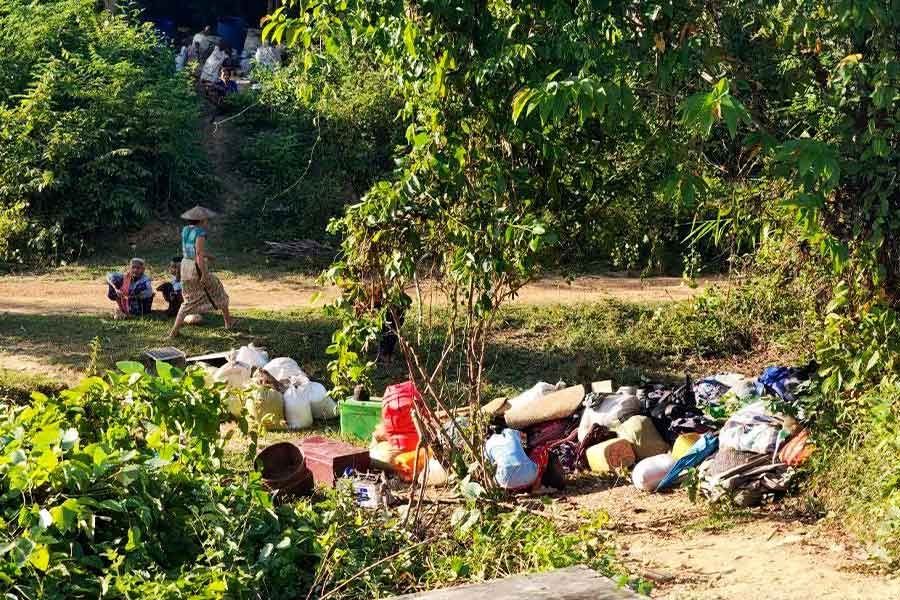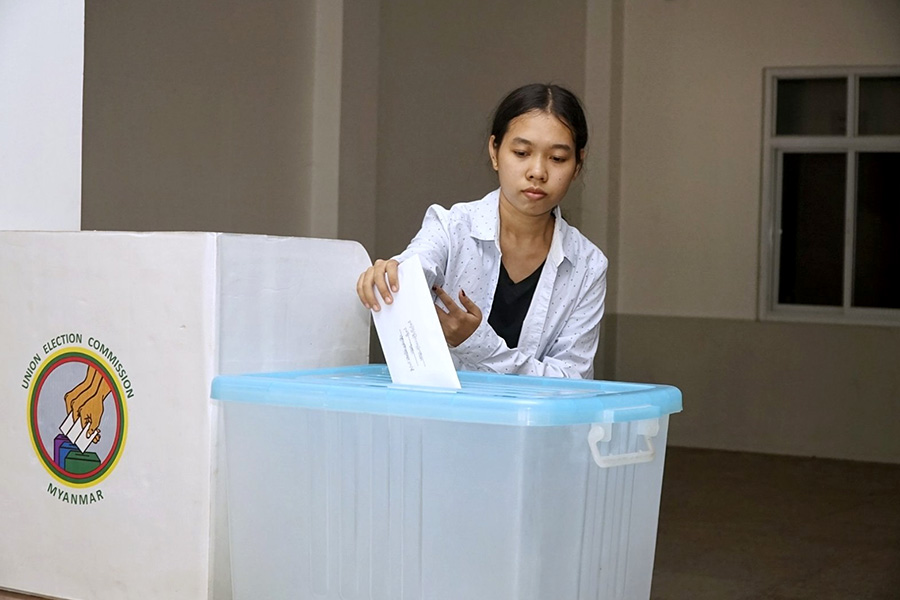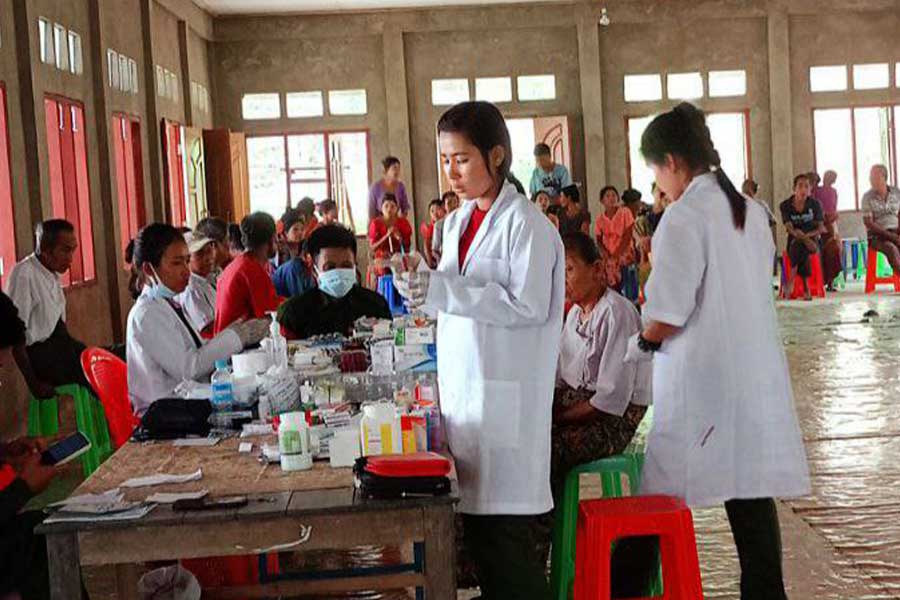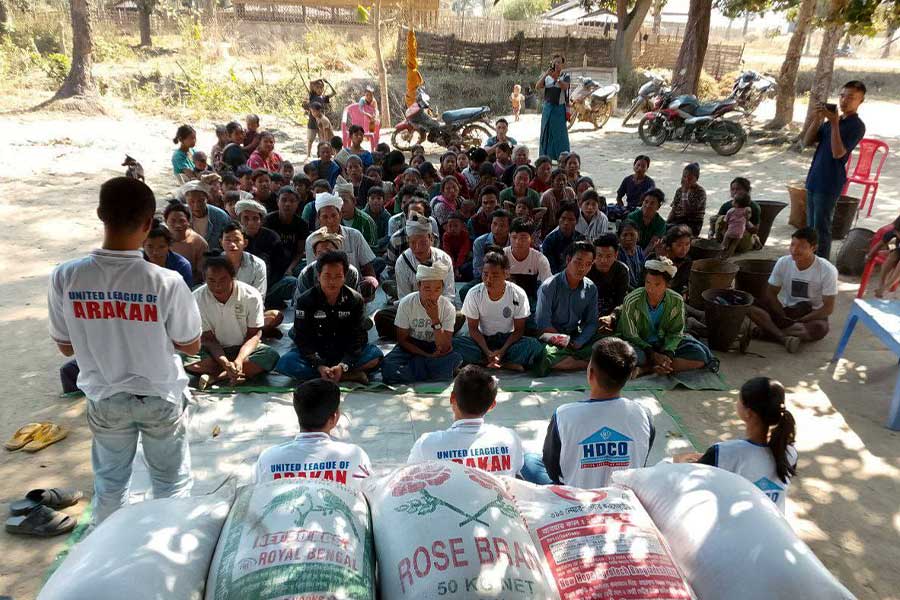- 15 mass casualty incidents from regime airstrikes reported in Arakan State since 2023
- Kyaukphyu IDPs forced to flee again amid junta airstrikes and artillery attacks
- New Diplomatic Movements Between Bangladesh’s New Government and the Arakan Public Administration
- Junta claims over 24 million ballots cast in 2025 poll, cites strong youth turnout
- ULA expands HIV prevention, healthcare services for sex workers in AA-held areas
In rare interview, AA chief quantifies ethnic armed group’s strength and influence
The Arakan Army (AA) has more than 30,000 troops, approximately 5,000 to 6,000 of whom have been deployed to “allied areas,” with the rest in Arakan State, Major General Twan Mrat Naing recently told Asia Times.
24 Jan 2022
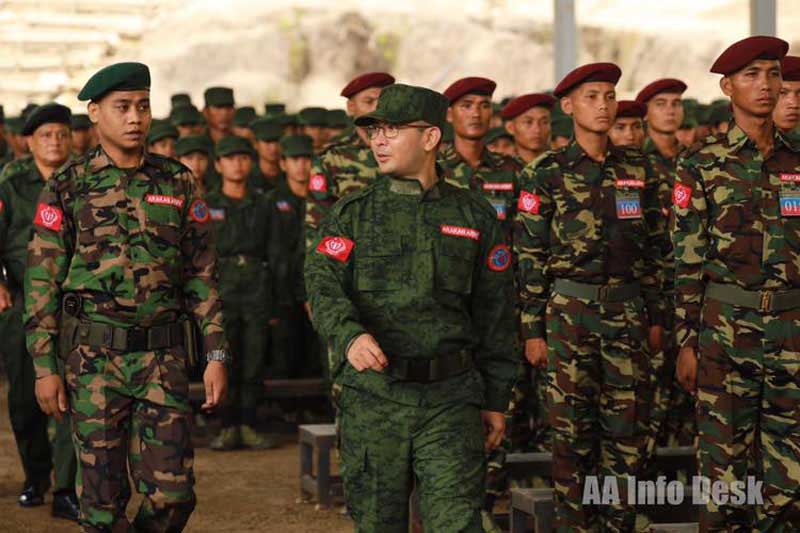
DMG Newsroom
24 January 2022, Sittwe
The Arakan Army (AA) has more than 30,000 troops, approximately 5,000 to 6,000 of whom have been deployed to “allied areas,” with the rest in Arakan State, Major General Twan Mrat Naing recently told Asia Times.
“We have trained over 30,000 soldiers in 13 years [since the Arakan Army’s founding in 2009], and there are still more combatants undergoing training in command and control, and technical skills. Around 70% of our troops are battle-hardened and have combat experience,” the AA commander-in-chief told the international news website in an interview published last week.
A two-year conflict between the ethnic armed group and the Myanmar military came to a halt toward the end of 2020, when the two sides reached an informal ceasefire arrangement. In the year-plus since, the Arakan Army has built up its influence across large swaths of Arakan State, including the establishment of parallel judicial and administrative systems independent of existing authorities.
“We control around 60% of the areas in the north of Arakan but less in the south,” Major General Twan Mrat Naing told Asia Times. “In some areas, it is difficult to draw distinct lines of control between us and the Myanmar army. They still control urban areas and have to keep those for strategic reasons, but we still project our authority as required in those areas and there are still a lot of contested areas as well.”
The Arakan Army was formed in 2009, in northern Myanmar’s Kachin State. More than a decade later, its attempts to exert administrative control over Arakan State have sometimes rankled the military regime.
The tenuous ceasefire reached in late 2020 has essentially remained intact since the military seized power in a coup on February 1 of last year. But the AA has warned that the two sides could return to a state of war at any time.
In his interview with Asia Times, Twan Mrat Naing did not mince words, expressing doubts about the ability of the junta, which calls itself the State Administration Council (SAC), to lead Myanmar to a better future.
“The SAC’s health system is crumbling, economically the country is going bankrupt and the country is paralysed politically. SAC is paranoid and has become more of a diplomatic pariah than ever before. And its military is overstretched on many fronts,” he was quoted as saying. “The junta has found itself in the middle of a storm, and they do not have much leeway for any mistake.”




